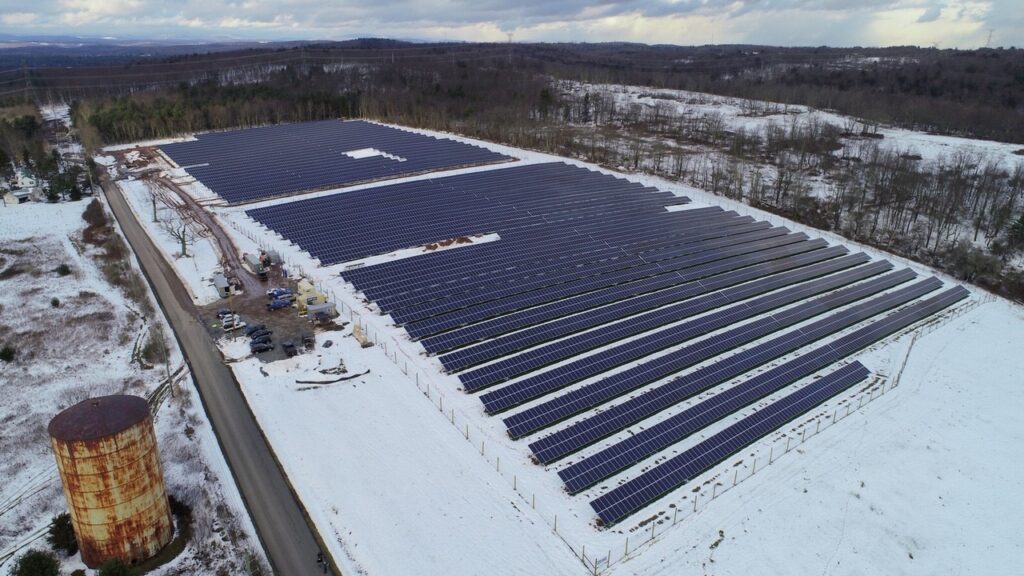
In October, I wrote about my efforts to subscribe to a community solar project here in Oregon.
My home’s rooftop isn’t solar-friendly. Community solar is a good alternative to rooftop solar, for me and the many homeowners whose rooftops are shaded and who want to replace utility power with clean energy.
In October, I could only get on a waitlist and was told that interconnection challenges were making it difficult to enroll in a program here in Oregon.
Supporting agrivoltaics
Then, a spot opened up for an innovative project that boasts high discounts off utility rates for subscribers: 12.5% for me, 50% for low-income families.
The project, called Solar Harvest, is an agrivoltaics installation, which combines solar panels and growing crops in the same field. Agrivoltaics projects intend to overcome the competition for land that often occurs between solar producers and farmers.
“The cooling effect of growing plants means solar panels generate more electricity and last longer,” says a Solar Harvest in a brochure. “And the higher soil moisture levels and cooler temperatures under solar panels mean less water is needed for irrigation, healthier, less stressed animals and plants.”
Learn more about agrivoltaics by watching this video from the National Center for Appropriate Technology, Harvesting the Sun.
For low-income customers, 50% off
A project of the Oregon Community Solar Program, Solar Harvest will give qualifying low-income homeowners and renters 50% off utility bills, said Dan Orzech, general manager, Oregon Clean Power Cooperative. That’s higher than many of the community solar programs across the country.
Before I jumped into signing a contract, I had to think about whether this program would yield any savings for me.
Community solar vs. green power and time-of-use rates
For many years, I have paid Portland General Electric (PGE) a premium for green power. The utility says that for customers who use 780 kWh per month, that premium amounts to about $7/month.
As an electric car owner, my usage is generally higher than that. In addition, I’m on time-of-use rates, which means that if I charge my car and run my clothes dryer, electric heaters, dishwasher and other electric appliances during off-peak hours–generally between 10 pm and 6 am– I pay 5.16 cents/kW, as opposed to 27.6 cents/kWh during high demand, or on-peak periods.
Given that it’s not easy to run all my loads during off-peak hours–especially when my kids are running electric heaters or the clothes dryer–I’m pretty sure the Solar Harvest option will yield more savings. What’s more, with Solar Harvest, I’m contributing to research about agrivoltaics. Oregon State University’s College of Agriculture is studying the impact of solar panels on soil health, water use, plant physiology and yields. And I want to support the community solar movement.
But I’ll still charge my car and my larger loads during off-peak hours. Since the solar I purchase becomes part of the overall energy mix and I receive power from PGE, I want to help reduce consumption when demand is high.
Bill credits through utilities
I signed my contract with Solar Harvest about a week ago. There are no up-front costs and I will receive bill credits through PGE.
I do pay a subscription fee for Solar Harvest, but that’s offset by the bill credits. My contract with Solar Harvest estimates that I’ll pay $1,303.9 in subscription fees, but with the discount, I’ll save $185.77 the first year.
PGE will continue to bill me and give me the 12.5% credit. What will that look like on my bill? Why don’t I just get a bill from Solar Harvest?
Under Oregon’s community solar program, the utility sends the bills.
For anyone interested in community solar, start by googling “community solar” along with the name of your state.
I’d love to hear from people who are already enrolled in community solar programs. What kind of project are you buying from? Are your utility bills clear about how your costs are broken down? And how do you feel about joining the community solar revolution? Email me at [email protected]